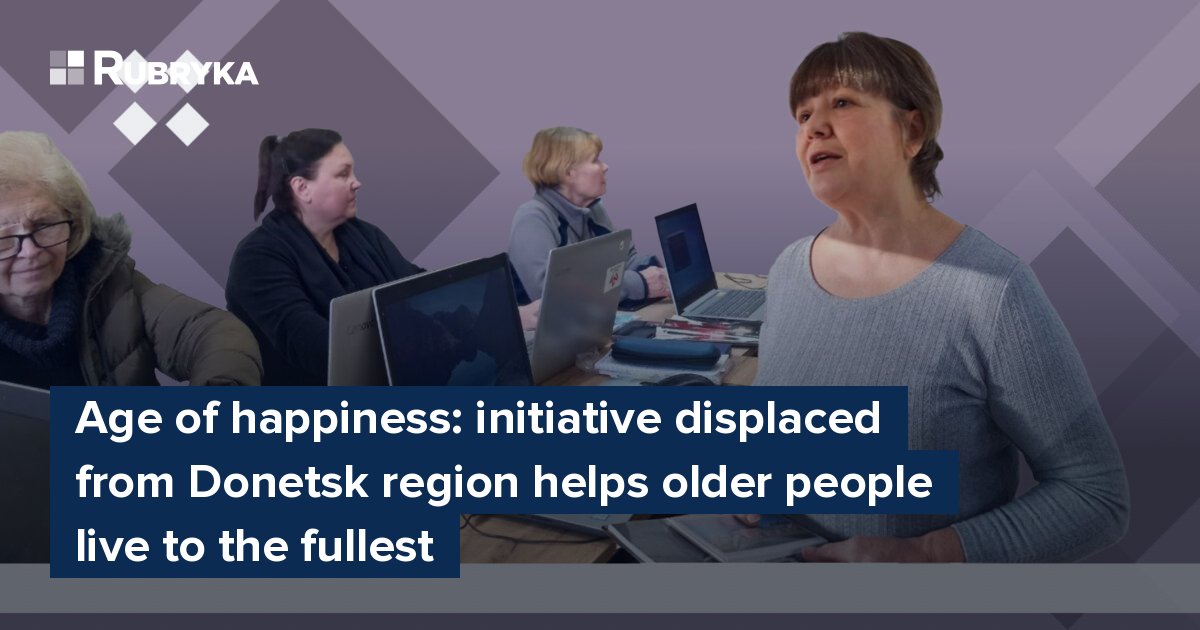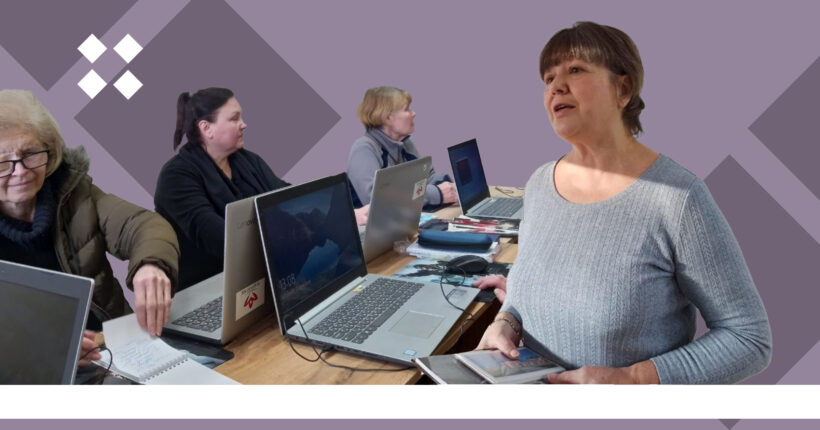
What is the problem?
The psychological crisis of older people is a rather well-known topic of discussion. Compared to the busy life of the young and middle aged, entering your 60s or 70s is perceived by many as a sentence. Stereotypes are still widespread in society and contribute to this feeling: they say that the fate of older people is to sit on a bench outside,discussing their ailing health and TV series.
What is the solution?
The Age of Happiness Foundation for the Support of Seniors reject this view of old age. The head of the foundation, Natalya Bondarenko, believes that a person over 50 should not find themself on the sidelines of life. Her organization, which relocated from the Donetsk region to the Kirovohrad region, helps people over 50 to lead an active lifestyle, feel needed, modern, and, most importantly — happy.
How does it work?
"Create what is missing yourself"
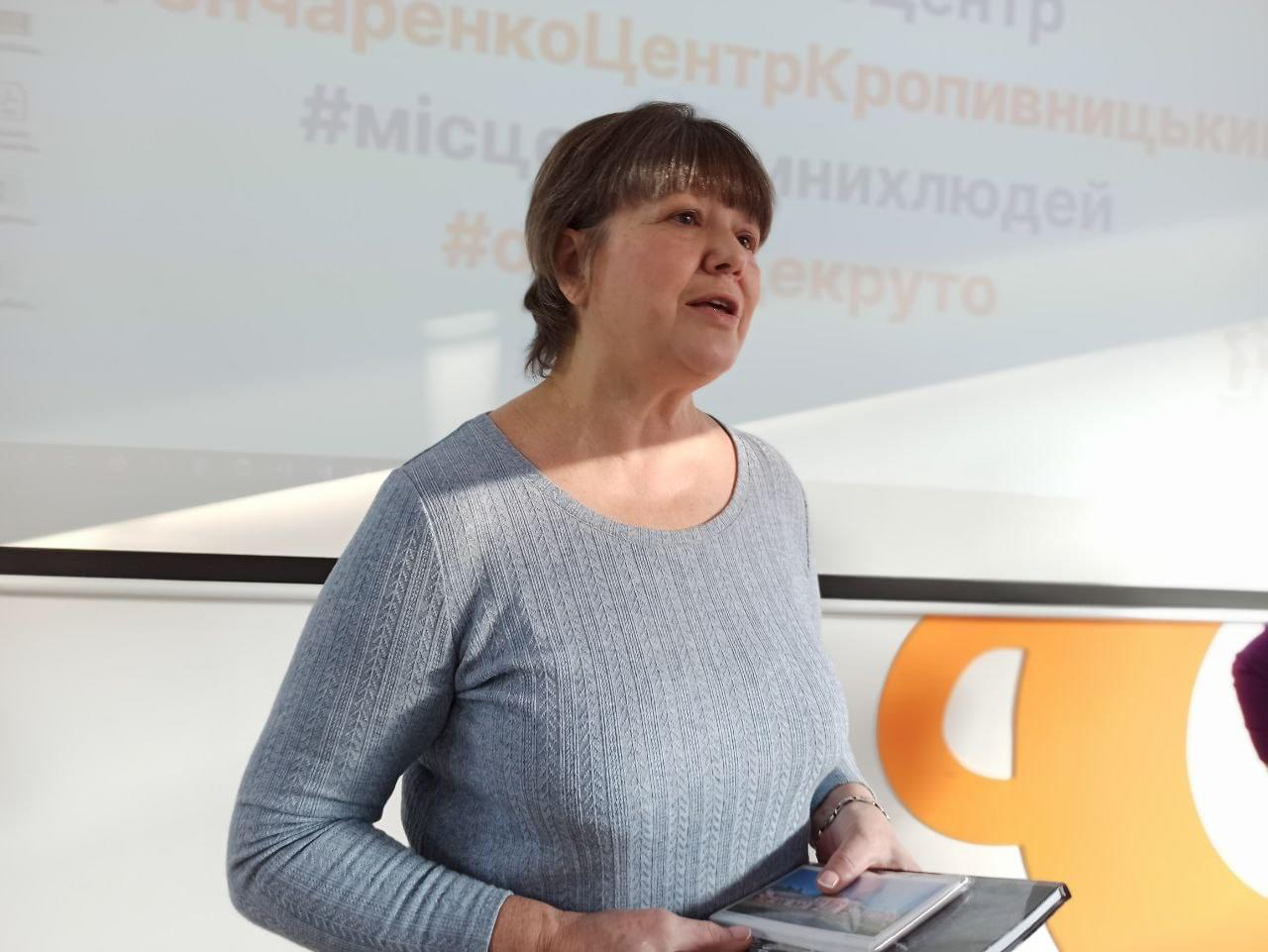
Nataliia Bondarenko is the founder of the NGO Age of Happiness.
The Age of Happiness Foundation for the Support of Seniors was founded in 2017 in Slovyansk, Donetsk region. At that time, Bondarenko, was a little over 50.
Bondarenko says that she understood that active and healthy longevity is in our hands, and starting with yourself and, best of all, in a circle of like-minded people is necessary. At that time, Bondarenko could not find activities for older people in her hometown.
"In the pension fund, a respectable age is called the time to finish living, but I did not want that. I wanted to live to the fullest, learn new things, freely use everything the world now offers us," Bondarenko tells Rubryka enthusiastically.
For her, the solution was to create what was missing by herself. A new non-governmental organization appeared in Slovyansk, and Bondarenko began implementing projects to support older people's interests. Since 2017, older adults of Slovyansk have been learning computer literacy, going on excursions, being creative, and doing group sports activities.
Resume work at a new location
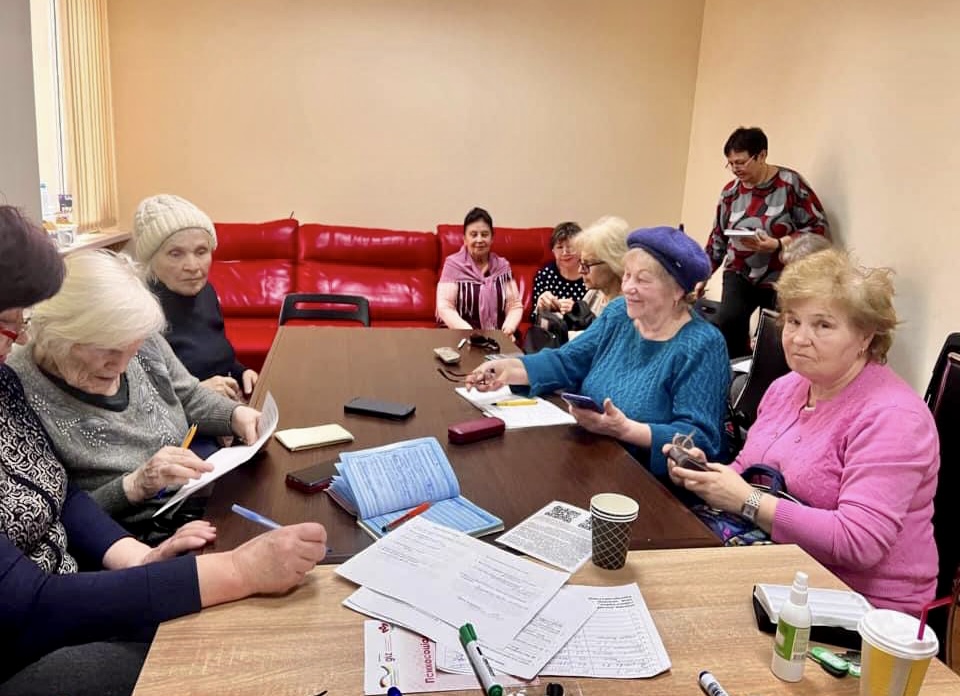
At the beginning of the full-scale war, the organization was forced to move from the Donetsk region to a safer region — that's how the Age of Happiness ended up in Kropyvnytskyi.
The team didn't get lost in the Kirovohrad region — it helped out in no small part that for five years before the war, they had been studying very actively, going to trainings, and participating in other projects, where they learned to establish contacts, communicate, and network with other non-governmental organizations. The founder of The Age of Happiness explains that this helped them quickly adapt to a new place. In the first months after moving, the Goncharenko Center, a network of educational, cultural, and volunteer spaces, supported the team greatly by accommodating the organization with a work space before they could re-open their hub in Kropyvnyrskyi.
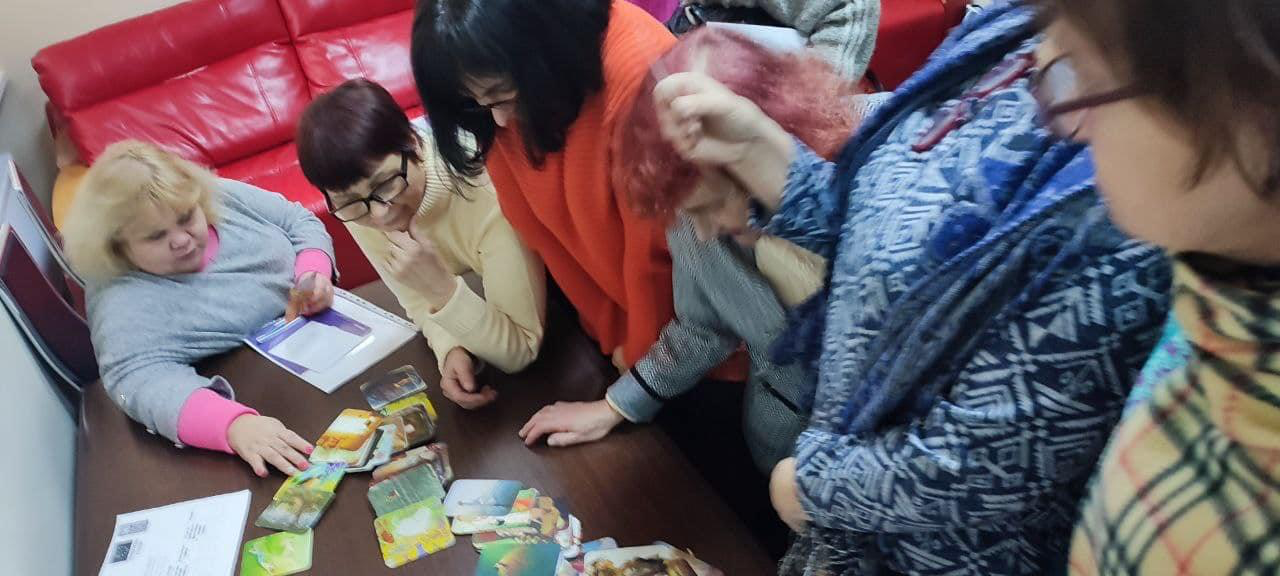
For the residents of Kropyvnytskyi to learn about the new hub for older adults, members of the NGO Age of Happiness team actively cooperated with social security services and distributed the hub's announcements about trainings and activities on their social networks. The NGO Age of Happiness has accounts on Facebook, Instagram, TikTok, YouTube, and its Telegram channel. They also printed informational flyers left in libraries, administrative service centers, and other public places that people of respectable age could visit.
"Social networks help a lot," Bondarenko shares of her experience with other non-governmental organizations. "After all, even if the person does not have accounts on social networks, their children and grandchildren definitely do. I very often hear how children refer their parents to us."
Be healthy, creative, and active
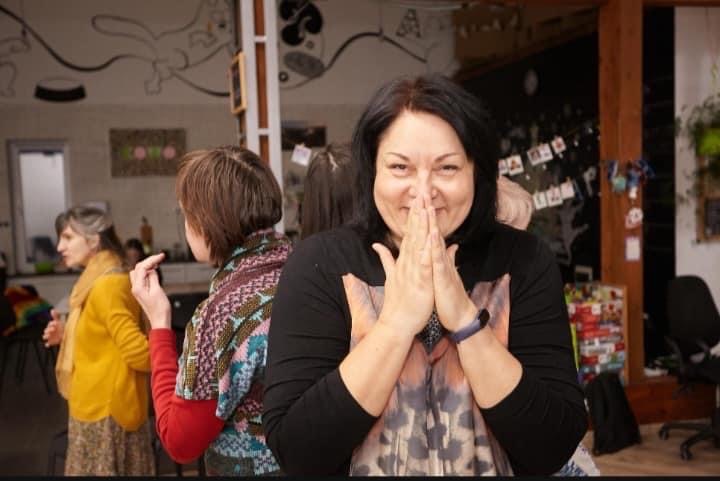
Among the main problems of older adults are health problems, inactivity, loneliness, and feeling useless. In today's realities, it is especially difficult for displaced people — those who lost their homes, friends, and their usual way of life because of the war.
Today, the mission of the Age of Happiness is not only to allow older adults to live a complete and quality life, but also to help them overcome the traumas they have experienced.
In Kropyvnytskyi, the Age of Happiness humanitarian hub works in several areas of support for older people:
- educational,
- healthy lifestyle,
- psychological and legal, and
- art practice.
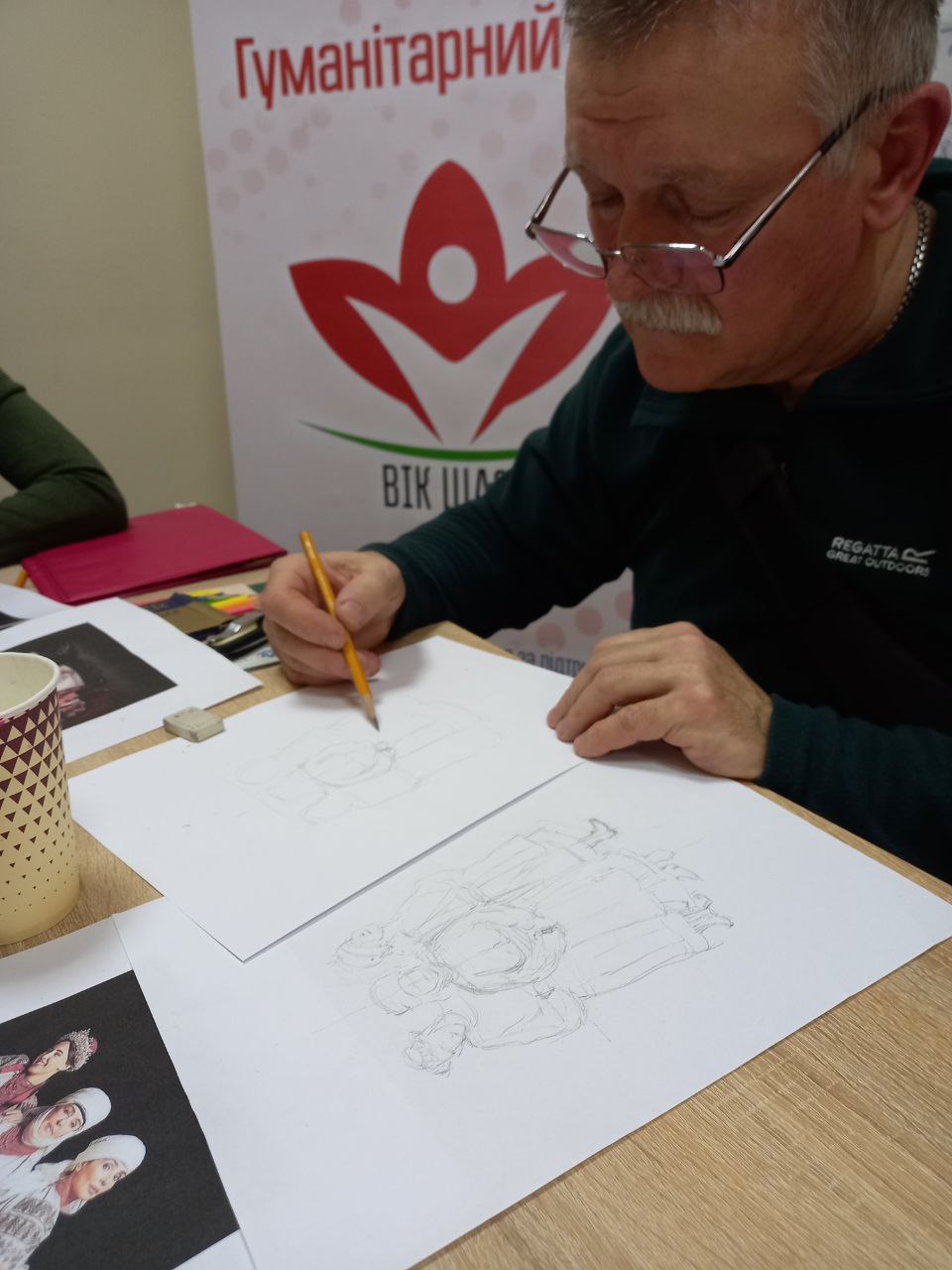
63-year-old Ivan Volodymyrovych likes to attend sketching classes.
In the Age of Happiness hub, over a hundred visitors aged 50 to 82 learn media literacy, master computers, and smartphones, as well as learning English. The hub hosts fashion shows and organizes free Nordic walking, dancing, and Pilates classes for IDPs and residents of Kropyvnytskyi. The hub holds trainings on overcoming trauma and healing techniques adapted specifically for older people.
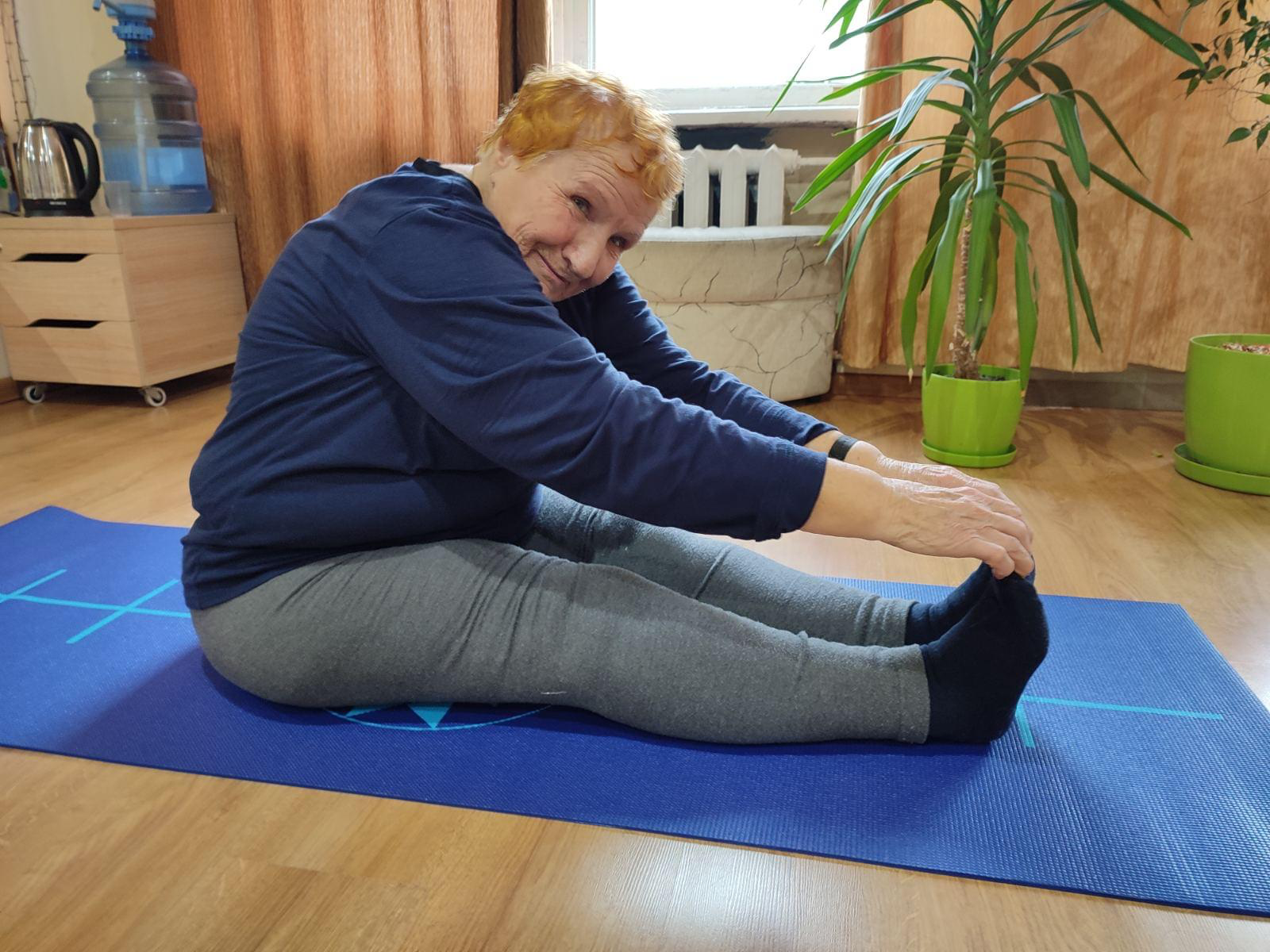
81-year-old Tamara doing a Pilates class.
"Probably, I'm living now only because I have the Age of Happiness," says Tamara.
The media education evening school has a special place among the projects of the Age of Happiness hub. Now, when an information war is actively being waged alongside the war on the front lines, it is critically important to help older people not to get lost in the flow of information and not succumb to Russian propaganda and fake news.
Bondarenko explains that in the media education evening school, the team looks for new formats and approaches to understanding everything happening around them, learning critical thinking, and creating their own media projects. For example, it can be creating a group on Facebook where people will talk about their hobbies and creativity, share photo projects, and attract supporters there.
The media school, which is run by Nataliya Fenko, assistant professor of the Ukrainian Philology and Journalism department, has already had several graduates. Now, the alumni are sharing their experiences with newcomers.
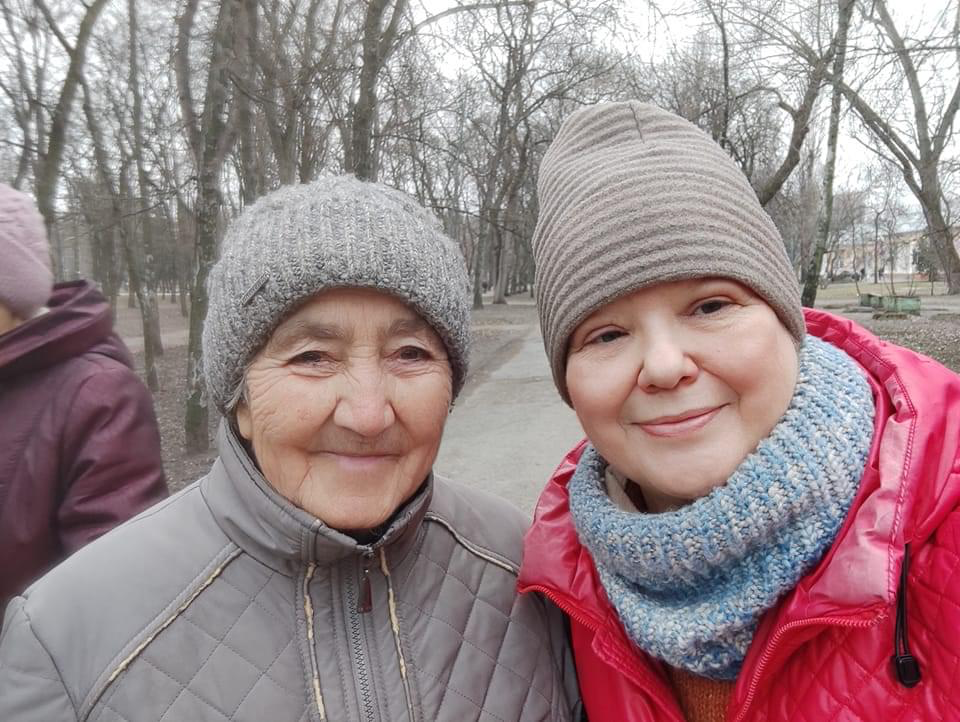
82-year-old Raisa (on the left) in The Age of Happiness takes Nordic walking classes, masters a smartphone and learns English.
Being needed
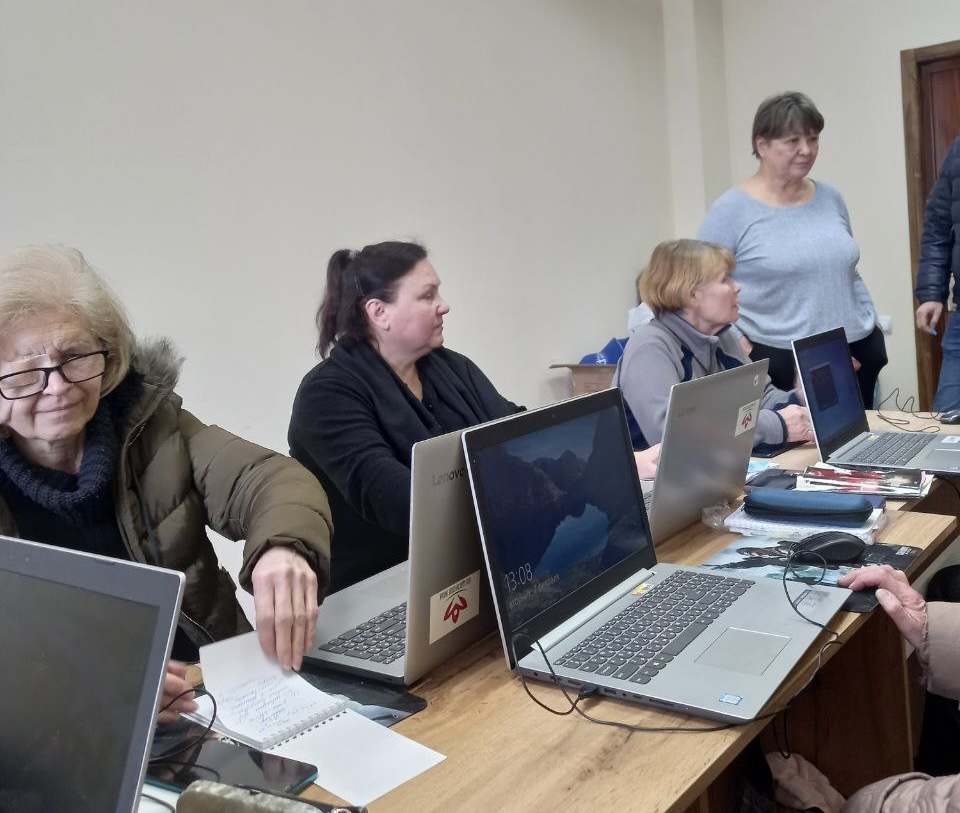
All these classes help local senior citizens and IDPs find new knowledge and skills here, new friends, and a new meaning in life. Visitors communicate even outside of classes, exchange phone numbers, support each other, and create their own projects.
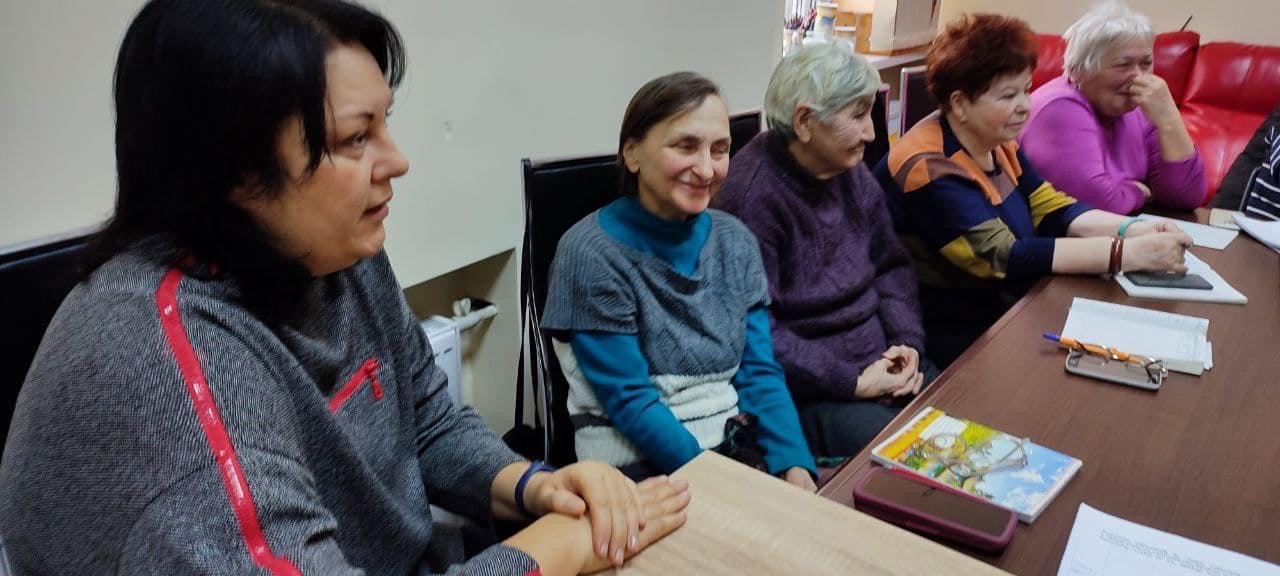
"Their eyes light up – how excited they are because they find something they love. People come to our classes with pleasure, and I get pleasure because they treat themselves and their place in a society completely differently," Bondarenko proudly shares with Rubryka.
Older adults begin to feel that they are needed, are not a burden on the state and their families, and that they can do anything. The hub teaches people to feel like full-fledged citizens of their country — for example how to write petitions and appeals. The team enables people to understand that they live in a democratic society, and that their voices and rights have value.
"I think that it will be useful not only for people of a respectable age, but also for Ukraine – for society as a whole, and for overcoming all these problems that we have now, and for the future development of our state," says Bondarenko.
Even more useful solutions!
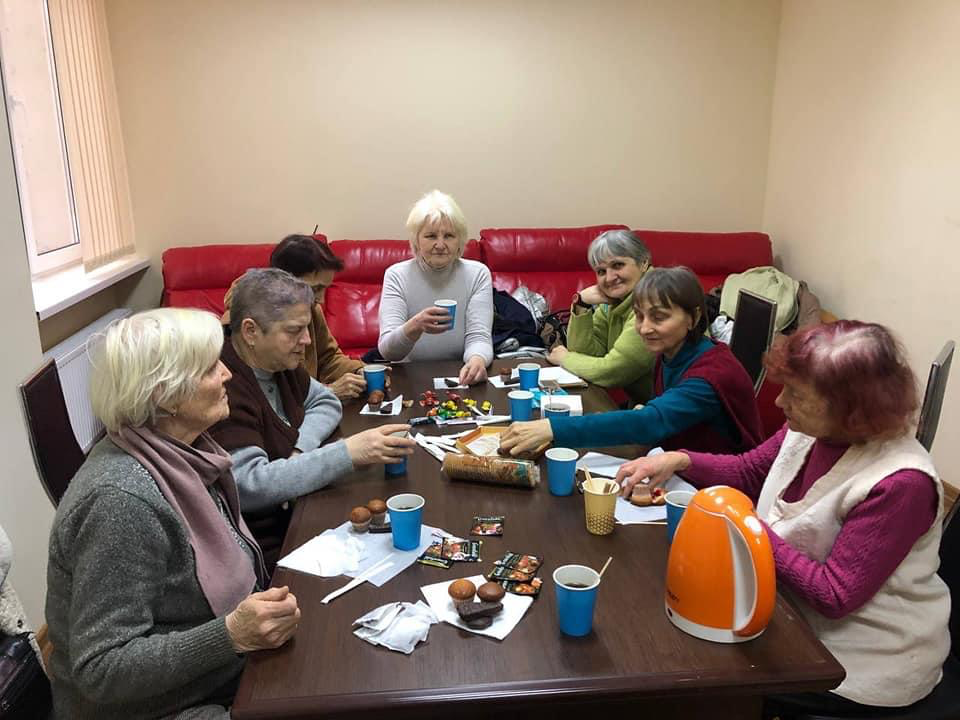
Fortunately, today there are clubs and hubs for older people not only in Kropyvnytskyi. It can be difficult for older people to find them themselves. Their children and grandchildren can help save their parents, grandparents from loneliness and restore their interest in life. Interesting communication and various activities with peers will be a source of positive emotions for older people, positively affect physical health, strengthen morale and help them feel their significance.
How to help an elderly relative to find a community of peers?
- Search on Facebook — the most popular social network among older people in Ukraine, compared with the audience of Instagram and TikTok. Most non-governmental organizations that care for older people have their pages and constantly talk about all the activities they conduct for them.
- Visit local social security services — They will help you find out if there are social initiatives in your city or village that aim to expand the circle of communication for older adults.
- Call the libraries of your locality — they often organize various interest groups for older people.


